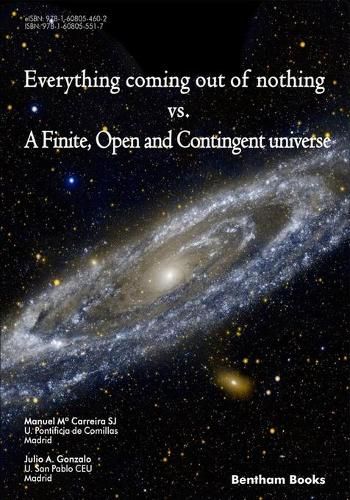Readings Newsletter
Become a Readings Member to make your shopping experience even easier.
Sign in or sign up for free!
You’re not far away from qualifying for FREE standard shipping within Australia
You’ve qualified for FREE standard shipping within Australia
The cart is loading…






Stephen Hawking, present occupant of the Lucasian Chair at Cambridge University, is today one of the best known theoretical cosmologists in the world. His important contributions, in collaboration with Roger Penrose, to the physics of black holes are well known, but this does not make comparable to those of Albert Einstein, as some times is affirmed in the mainstream media. In this book, Hawkings work as presented at the Vatican Study Week on Astrophysical Cosmology (1981), his bestseller "A Brief History of Time" (1988), his lecture on "Goedel and the end of physics" (2002), and "The Grand Design"(2010) are briefly examined. In them many philosophical questions are raised but no rigorous answers are provided. In the second half of the book, chapters on the origin of science in the Christian West, the post-Renaissance scientific revolution, the true pioneers of modern physics put contemporary cosmology in a proper perspective. The authors conclude that contemporary observational data are compatible with a finite, open and contingent universe, rather than with "everything coming out of nothing". This book puts in a proper historical perspective, contrary to Hawking's, that the universe is intelligible as attested by the monumental fact of modern science, and, therefore, that it is contingent, and therefore created. Very often, contemporary theoretical cosmologists ignore the crucial contributions made in Medieval Europe to the birth of modern physics. This book intends to bridge the gap in accessible language for the non specialist.
$9.00 standard shipping within Australia
FREE standard shipping within Australia for orders over $100.00
Express & International shipping calculated at checkout
Stephen Hawking, present occupant of the Lucasian Chair at Cambridge University, is today one of the best known theoretical cosmologists in the world. His important contributions, in collaboration with Roger Penrose, to the physics of black holes are well known, but this does not make comparable to those of Albert Einstein, as some times is affirmed in the mainstream media. In this book, Hawkings work as presented at the Vatican Study Week on Astrophysical Cosmology (1981), his bestseller "A Brief History of Time" (1988), his lecture on "Goedel and the end of physics" (2002), and "The Grand Design"(2010) are briefly examined. In them many philosophical questions are raised but no rigorous answers are provided. In the second half of the book, chapters on the origin of science in the Christian West, the post-Renaissance scientific revolution, the true pioneers of modern physics put contemporary cosmology in a proper perspective. The authors conclude that contemporary observational data are compatible with a finite, open and contingent universe, rather than with "everything coming out of nothing". This book puts in a proper historical perspective, contrary to Hawking's, that the universe is intelligible as attested by the monumental fact of modern science, and, therefore, that it is contingent, and therefore created. Very often, contemporary theoretical cosmologists ignore the crucial contributions made in Medieval Europe to the birth of modern physics. This book intends to bridge the gap in accessible language for the non specialist.